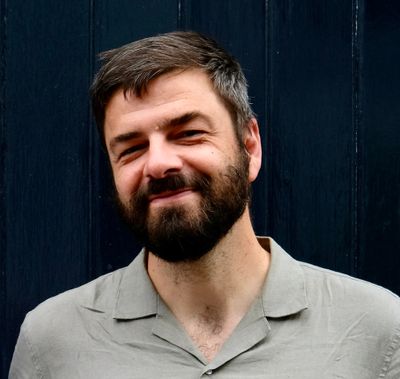
A recent post on a change in our vacation policy has caused a response that I’d have never have imagined. Culture, especially in the US, seems to have a very different idea on vacation days and what you should be doing during a vacation.
Last year, I took a long vacation myself, and I want to talk about a few things that I did to get as much as possible out of it.
In the previous article on vacations, I argued that switching off is an important part of taking time off, and it’s probably the hardest one for us to get used to, especially when we work with the internet every day. There’s a mix of culture involved, but it also touches on our daily habits and the omnipresence of mobile internet in our daily lives.
Taking a vacation where you actually disconnect from everything has become surprisingly hard. Just as hard as it has become to get lost somewhere, as you always have a mobile phone with a navigation system with you.
I’m not crying after the old days, where I used a paper map to navigate through unknown countries and cities, but I appreciate the art and the thrill of getting lost, not knowing exactly where you are or how you got there, meeting interesting people just because of the situation you’re in.
What was so special about this last vacation, especially compared to others before? Nothing really, it was very normal from my perspective, but I’ve realized how rare it’s become to just disconnect and enjoy time alone or with your family.
I have a long vacation coming up, and even as the CEO of a company, I plan to be offline for the entirety of seven weeks. I’ll be coming back knowing that my team can function perfectly well without me, which can be a hard thing to acknowledge. We live in a world that makes us think something couldn’t possibly function without us. It requires me to trust they’ll make their best judgement, and I do.
It doesn’t take a lot these days to focus on your vacation and the time in a different country, a different culture and a completely different scenery. All in all inspirations to fill your head with new impressions and thinking.
The little bit it takes is surprisingly hard to implement, as it so completely breaks with what we do every day.
All it really needs is to flip a switch to get to a moment of clarity and serenity, in my view the things that make a vacation time well spent.
When is a vacation not time well spent? When I spend it thinking about work, stuff I do at home, everything that’s keeping me busy during normal life.
It takes two weeks…
In my experience, the relaxing part of a vacation doesn’t start until the second week. The first week involves anxieties about the stuff you miss at work, falling into the deep hole of not know what you’ll do with the time ahead, and other irrational fears.
Every time I started a longer trip, during the first days I found myself wondering what I’m going to do with all that time. It passes pretty quickly, but it takes about a week for me. So if I want this vacation to have an impact, I plan in at least two weeks.
A week of a vacation still is better than no vacation, I tend to spend it traveling with friends and their families, focusing on a different thing that just relaxing, I focus on my friends and family. Longer vacations are for peace of mind and inspiration.
Disable calendar and email
On past vacations, I’ve taken computers, and from past experience, it’s a common thing to do. I’ve had the expectation that I may need it some time.
Nowadays, you can just bring an iPad, but it doesn’t solve the problem. You probably have email, calendar, the whole shebang setup on your iPad. The temptation is near to just have a peek at email.
Screw that, disable everything, including text messages. If you want to do your vacation right, you won’t need them the slightest bit. All it’ll do is remind you that there’s stuff going on while you wanted to focus on recharging and relaxing.
Disable all that on your phone and iPad, all it takes is to flip a switch.
Disconnect from social media
It’s become easier than ever to feel connected even while you’re on vacation thanks to Twitter, Instagram and all the other services demanding your attention every day, shoving push interruptions in front of your face even when you’re at the beach.
It’s great to have these, because they make you feel close to everyone you know even while you’re away. You can send them pictures of you while you’re at the beach, while you’re jumping down a cliff or while you’re having a nice drink at the pool, cheering your people at home.
But doesn’t that defeat the purpose of enjoying time alone or with family? What’s the benefit you get from reading Twitter, from sharing stuff on Instagram, from checking Facebook?
I’m telling you what you’re getting: nothing, only more distractions that keep your mind from letting go and recharging.
It’s great to be connected to people you know around the world, but you do that every day already.
Even being away for seven weeks, here’s the amazing realization that I’ve had in the past: not a lot happens that’s relevant to you. People will tweet snarky things, they will post pictures of their food, they’ll send you messages asking how your vacation is, work will get done.
All it takes to get rid of all that is to flip a switch (or to delete all of those apps). While you’re at it, remove anything that’s related to work. Yes, go ahead, you won’t need it.
Set the right expectations, automatically archive all email
I posted the vacation policy article over on LinkedIn, and someone argued in the comments that checking in regularly while he’s on vacation gives him less stress about coming back. I presume he’s talking about the big pile of email and tasks that wait for him when he comes back.
I’d argue that this only happens when you set the wrong expectations, for yourself and for your team. Not reading email while you’re on vacation is a conscious decision, and you should communicate it to your team to make it explicit.
But Mathias, you say, what if I come back to an inbox of 500 emails?
You don’t have to. Here’s what I did during my last vacation: I automatically archived all incoming emails.
It’s beautiful beyond words, because you come back to an empty inbox after your vacation. It’s one less thing to be stressed about. Yes, there are still things to catch up on, but you can get those from talking to the people rather than spending time tearing your hair out reading through more or less important emails.
I did label email that was addressed directly to me and glanced through the pile for a bit to look for really really important things.
In hindsight, even that was a waste of time. Here’s what I’ll do the next time around.
Set up an vacation auto-responder
Rather than just auto-archive email, I’ll set up an auto-responder (yes, I’ve become one of those people) that tells the sender that I won’t be reading their email and that they should be emailing this other person if it’s urgent, or that they should email me again when I’m back. Not everyone loves vacation responders, I certainly don’t, but ask yourself: would you prefer waiting for a response you’ll never get, or knowing that you won’t be getting one?
Setting expectations is important upfront if you want to have peace of mind. Some might consider this rude, but hey, it’s your vacation, and you’ll want to spend as much time as possible recharging rather than be distracted by work things.
What you do by making this explicit is setting expectations with your team and with yourself. It’s a simple contract that they shouldn’t be expecting any response from you and need to solve any problem that comes up on their own, which they’re perfectly capable of doing.
In the example above, and just think about it yourself, you’re distracting yourself once a week with work topics, just when you spent one week to get used to the vacation, you’ve put your mind back, requiring another couple of days to fall back into vacation mode.
But Mathias, you say, I need this email to communicate with hotels, backpackers, car rentals, flight booking agencies and others while I’m on vacation. Good point, but how about this: set up a new email address for communications, and just use that, for this very vacation.
Avoid reading books related to work
Being away for a while is a perfect opportunity to read books that you haven’t gotten around to reading in a while. I’ve done my share of trips where I ended up reading books on programming, like one on Clojure, or books on management.
I can’t recommend it, as that will only keep your head filled with more thoughts related to your work.
Last year I ended up reading lots of non-fiction (look at the list and try to find the spot where I went into vacation mode), but everything completely unrelated to my day job. It was refreshing, inspiring and thought-provoking. Before you ask, I rarely read fiction books, but I vowed to change that.
Reading for and about work has a good place in your work life, try to balance this out by focusing on completely different types of books while you’re on vacation.
Make the decision to be offline
The above sounds really simple, but I also realize that it’s not that easy to implement. But here’s the thing: it’s your decision, not anyone else’s.
It takes just one conscious acknowledgement: this is my time, and I’m going to focus on myself, my family, the place I’m at, and nothing else.
The rest is merely asking what’s keeping you from achieving these goals and cutting out everything but the bare essentials.
During previous vacations, I was keen on keeping a blog and updating it regularly to let family know what we’re up to. Believe me, that was a big waste of time. You can do all of that afterwards.
Vacation and taking time off is about you and you alone. It’s not a rude thing to admit, all it does is set an explicit expectation.
After you’ve acknowledged this, you just need to ask a few questions on what you can cut out until you’ve reached the bare essentials.
Here’s my favorite trick: plan every vacation like you’ll mostly be offline, without any access to internet. Then follow the trail of things you need as the bare essentials, put music on your phone, books on your Kindle, get offline maps for your phone.
Want to keep it offline? Most devices have an airplane mode, enable it, and leave it on.
I don’t know about you, but my family, music, books and some idea of where I’m going make for the best vacation I could ask for. I don’t need to share that with anyone else, it’s my time.
All it takes is to flip a switch, and you can focus on having the best time of your life rather than work.
